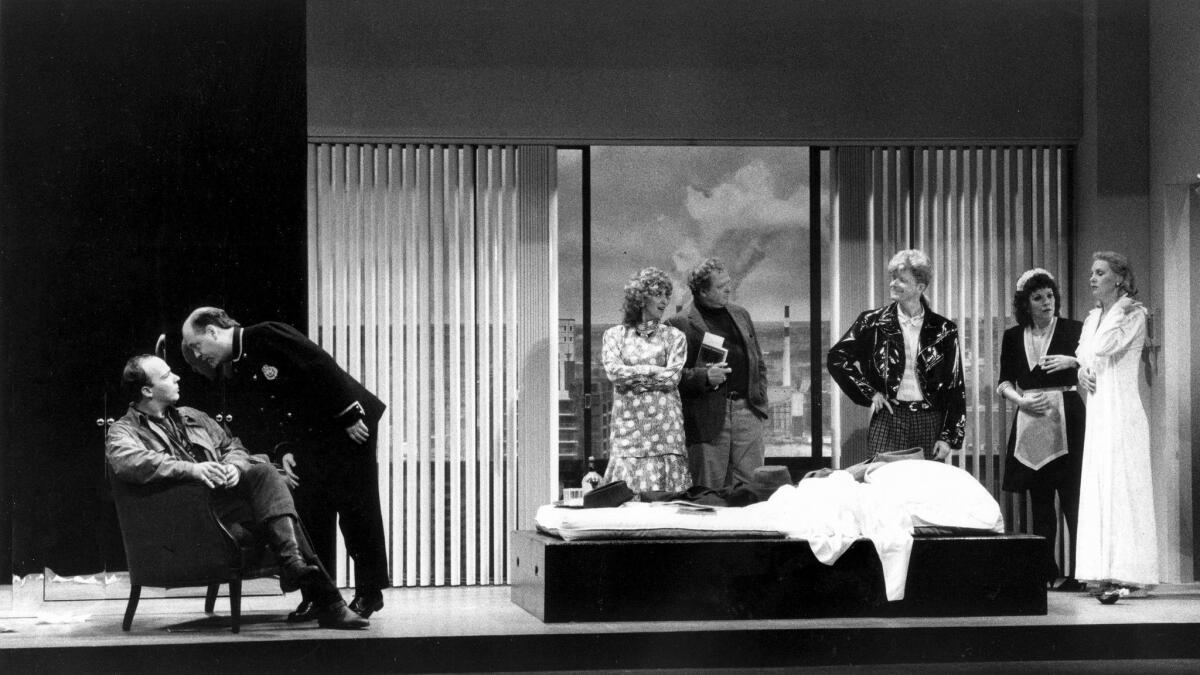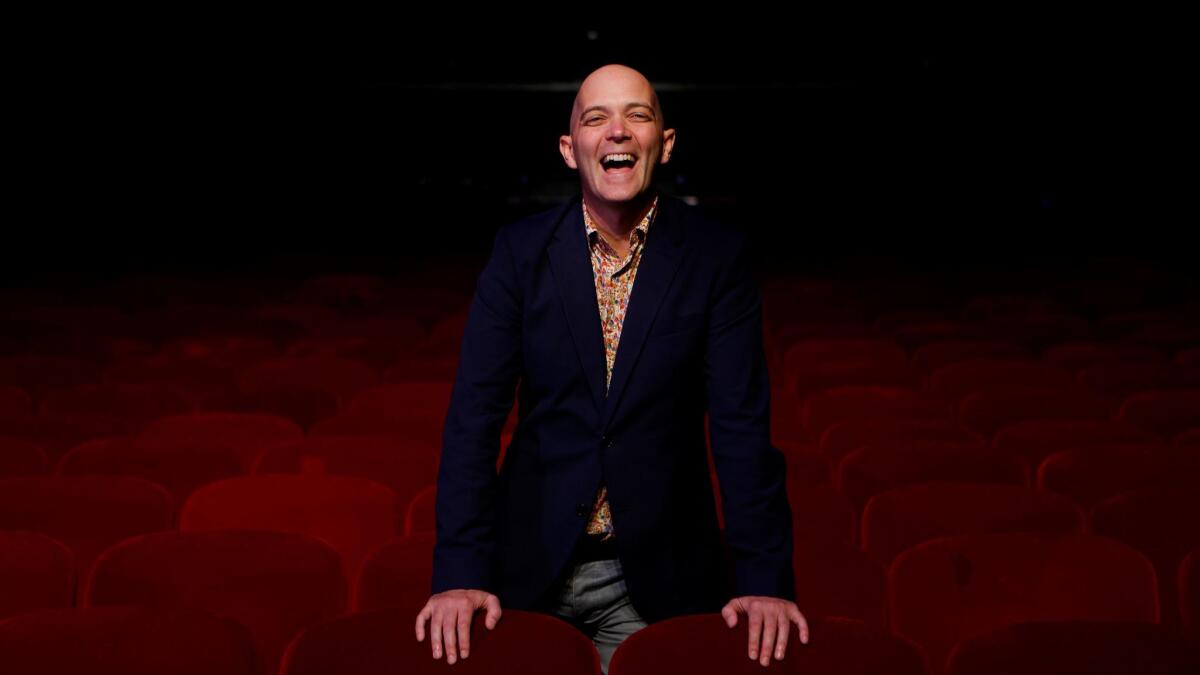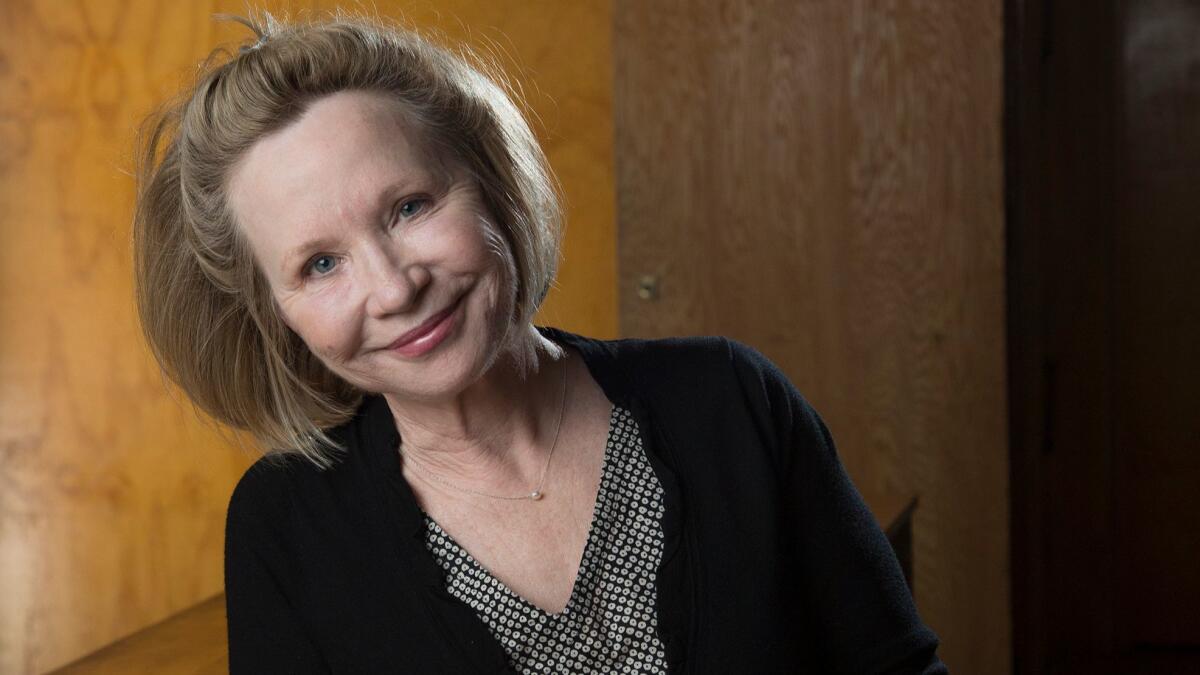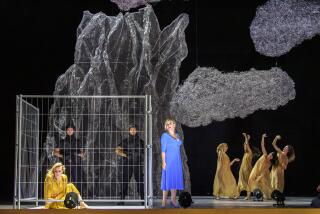Newsletter: Essential Arts & Culture: Frida as opera, Julius Caesar continued, Taylor Mac’s day-long songfest
Frida Kahlo in opera. Beyond the “Julius Caesar” controversy. And 24 hours of song. I’m Carolina A. Miranda, staff writer at the Los Angeles Times, lover of hot coffee and burritos, with the week’s essential culture news:
An operatic ‘Frida’
“If she hadn’t existed, opera would have had to invent her,” writes Times classical music critic Mark Swed of 20th century Mexican painter Frida Kahlo. So look no further than Robert Xavier Rodriguez’s “Frida,” which had its premiere in 1991 and is currently being staged by the Long Beach Opera at the Museum of Latin American Art through Sunday. The show, which was groundbreaking when it debuted, has a “strong book” and compelling performances. But in 2017, writes Swed, “‘Frida’ feels a little old-fashioned in its dramatic approach.” Los Angeles Times
Swed also reports on another opera with a powerful story about women: Kamala Sankaram’s “Thumbprint,” part of the Los Angeles Opera Off Grand series at REDCAT, which serves as a “vibrant call for women’s rights in Pakistan.” Los Angeles Times
The most unkindest cut of all
The Public Theater’s “Julius Caesar” has already closed, “but the sociopolitical carnage remains,” writes The Times’ Jessica Gelt, who examines the fallout over the staging of a Trump-like “Caesar” in New York. Citing director Oskar Eustis, she notes: “The controversy resulted from a political base being riled up to believe something that wasn’t true: that the Public Theater was advocating the assassination of a sitting president.” Los Angeles Times
Times theater critic Charles McNulty weighs in on the subject (with a nod to a production of “Richard II” at the Old Globe in San Diego): “‘Julius Caesar’ seems to me especially timely because it forces us to question the political certainties that can entice citizens to take the law into their own hands. The critical consensus was that [the] production did justice to the play’s complexity, but it should come as no shock that the inflammatory theatrical imagery ignited the media mob.” Los Angeles Times

Mark Swed examines the daring 1980s productions by director Peter Sellars that also serve as comment on Trump and democracy — including a version of Handel’s “Giulio Cesare,” which featured a press conference at a fancy hotel led by a “cocksure” president, and the time he set Mozart’s “The Marriage of Figaro” in an apartment in Trump Tower. Writes Swed: “This is the world, to quote Sellars’ plot synopsis of an old libretto again, of beautiful people for whom ‘perjury, loss of happiness and absence of consciousness can be compensated for by the feel of money.’” Los Angeles Times
Lastly, a profile of Laura Loomer, the woman who disrupted the Public’s production of “Julius Caesar.” New Yorker
A bit of candy, a bit of avant-garde
Charles McNulty took in the new production of the Jimmy Buffet-inspired musical “Escape to Margaritaville” at the La Jolla Playhouse. The show, he writes, “is pure escapism” — the “equivalent to watching four or five ‘Two and a Half Men’ reruns back to back.” But, with some regret, he couldn’t help enjoying himself, due to music and lyrics “that could get Falstaff karaoke-ing.” Los Angeles Times
Plus: McNulty also saw a rare staging of María Irene Fornés’ play “The Conduct of Life” at Inner-City Arts in Los Angeles, a “playful, poetic and political” work set in an unnamed Latin American autocracy. It is, he writes, “an irresistible chance to see a work that appears more often on theater syllabi than on season brochures.” You still have time to catch it: “Conduct” is on view through Sunday. Los Angeles Times
24 hours of song

Jessica Gelt reports on an epic undertaking in song that is in the works courtesy of Taylor Mac and UCLA’s Center for the Art of Performance: a “deliriously experimental” production of “A 24-Decade History of Popular Music” that consists of four six-hour chapters that amount to 24 hours of song. “This is theater of the unexpected; it is theater of calamity; it is theater according to the gospel of Taylor Mac,” she writes. Los Angeles Times
Making ‘Cake’

Stage and television actress Debra Jo Rupp, best known for her role as Kitty Forman in “That ‘70s Show,” is starring in Bekah Brunstetter’s new drama, “The Cake,” debuting at the Echo Theater Company. She speaks with The Times’ Deborah Vankin about taking on the role of a Baptist baker who has to confront her beliefs when she makes a cake for a same-sex wedding. “I find that playing parts that are really close to who I am are really hard for me,” says Rupp. “The further they are away from me, the easier they are to play.” Los Angeles Times
Architecture’s identity crisis
Times architecture critic Christopher Hawthorne toured the new Museum of the American Revolution in Philadelphia, designed by Robert A.M. Stern Architects. He says the building offers a narrow view of our national identity — one rooted in British colonial tradition. A better embodiment of who we are, he says, can be found across town at a 1960s home designed by architect Robert Venturi, a building where “Benjamin Franklin, the Shakers, Gertrude Stein and Andy Warhol are all squeezed in together.” Los Angeles Times
Russian ballet in L.A.
The Russian contemporary ensemble the Eifman Ballet is on a 40th anniversary tour around the U.S., with stops in Orange County, followed by shows this weekend of “Tchaikovsky” at the Dorothy Chandler Pavilion in Los Angeles. Contributing reviewer Laura Bleiberg reports on the production of “Red Giselle.” Los Angeles Times
Rethinking a sculpture in Minneapolis
Last month, a controversial sculpture by Los Angeles artist Sam Durant raised an outcry in Minneapolis for employing a gallows that referenced the execution of 38 Dakota men in the late 19th century. The installation, which was organized by the Walker Art Center, has since been removed. I sat down with Durant to discuss the controversy — and why he doesn’t feel censored. “The work,” he said, “no longer fulfilled my intentions.” Los Angeles Times
Since we’re on the subject of the Walker: A retrospective of work by Jimmie Durham organized by the Hammer Museum has drawn criticism in Minneapolis over questions related to the artist’s heritage, reports Alicia Eler. Durham, who was on the board of the American Indian Movement in the 1970s, claims to be of Cherokee descent. Some indigenous cultural figures aren’t convinced. Minneapolis Star Tribune
Sort of related: Novelist Zadie Smith weaves together a critical look at Jordan Peele’s “Get Out” with Dana Schutz’s controversial painting “Open Casket” to look at how we set boundaries for addressing issues of race in art. Nuanced and wildly smart. Harper’s
A 101 for ‘I Love Dick’
Priscilla Frank has put together an essential guide to all of the feminist films, performances and video art referenced in Jill Soloway’s television series “I Love Dick,” which is based on the artsy novel by Chris Kraus. Warning: This post contains arty nudity. Huffington Post
Plus: Tulsa Kinney sits down for a conversation with L.A.-based Kraus. Artillery
In other news…

— I get to the bottom of that mysterious mermaid sculpture installed on the 10 Freeway. Los Angeles Times
— Did a DJ let slip Banksy’s true identity? Metro
— The Getty has received a major gift of photography. Los Angeles Times
— How Scarlett Coten rethinks how we see Arab men in her pictures. Africa Is a Country
— A priceless codex returns to Peru after an outcry, but the Spanish government will not let go of ownership rights. Throwback to the days of the colony? Artnet
— In Iraq, an iconic 12th century mosque was destroyed during a battle in Mosul. Hyperallergic
— How Lisa Bielawa’s “Vireo,” a partnership between Santa Ana’s Grand Central Art Center and KCET, made opera episodic. San Francisco Classical Voice
— A revitalized Opéra Comique in Paris comes with specially commissioned cake. Bon appétit. New York Times
— Why the LGBTQ districts dubbed “gayborhoods” are disappearing. Financial Times, New York Times
— From the annals of art and gentrification: How a downtown L.A. developer is using art to attract tenants. KCRW Design & Architecture
— Related: The Santa Fe Art Colony is hoping to remain in the city’s now-booming Arts District. KCET Artbound
— At a time of anti-Mexico rhetoric, MXLA, a two-day summit at REDCAT, seeks to establish greater connection between L.A. and Mexico City. Los Angeles Times
And last but not least…
Trump’s Tweets are now an art installation. Artnet
Sign up for our weekly Essential Arts & Culture newsletter »
ALSO
Datebook: Painted pools, Biblical women, John Divola’s pictures and an art horror flick
Can America’s moviegoing habit be saved? The past, present and uncertain future of the multiplex
More to Read
The biggest entertainment stories
Get our big stories about Hollywood, film, television, music, arts, culture and more right in your inbox as soon as they publish.
You may occasionally receive promotional content from the Los Angeles Times.







